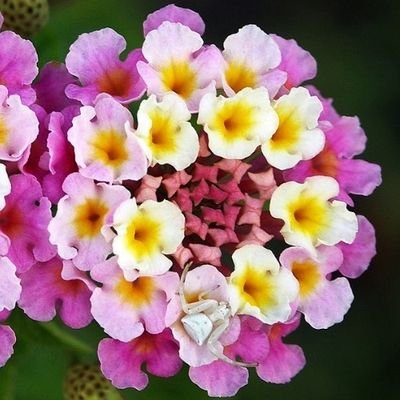
Bioinvasions India
@BioinvNet
Followers
253
Following
473
Media
27
Statuses
454
Biological Invasions Network of India | Research | Policy | Communication | Management | Restoration | Led by Ninad Mungi, Monica Kaushik, Rajat Rastogi
Joined April 2022
A successful story of #invasive #species removal and #ecosystemrestoration ;; Worth replicating elsewhere
In one of India’s largest ecosystem restoration efforts, the Tamil Nadu Forest Department is reclaiming forests from invasive species and reviving habitats for wildlife to flourish. Already 34,710 hectares have been restored , including 26,735 ha of Lantana camara, 4,685 ha of
0
1
8
Rare positive stories of invasive species management. Huge potential for India to upscale such efforts
When forests are freed from invasive species the biggest win is for the biodiversity and wildlife. TN Forest team has documented wildlife returning to areas cleared from invasives #invasives #TNForest #SatyamangalamTigerReserve
0
1
4
When forests are freed from invasive species the biggest win is for the biodiversity and wildlife. TN Forest team has documented wildlife returning to areas cleared from invasives #invasives #TNForest #SatyamangalamTigerReserve
In one of India’s largest ecosystem restoration efforts, the Tamil Nadu Forest Department is reclaiming forests from invasive species and reviving habitats for wildlife to flourish. Already 34,710 hectares have been restored , including 26,735 ha of Lantana camara, 4,685 ha of
28
185
1K
Sustained efforts of invasive species management can result in positive changes. This model must be upscaled at national level @BioinvNet
In one of India’s largest ecosystem restoration efforts, the Tamil Nadu Forest Department is reclaiming forests from invasive species and reviving habitats for wildlife to flourish. Already 34,710 hectares have been restored , including 26,735 ha of Lantana camara, 4,685 ha of
0
1
3
New study records globally unprecedented rates of plant invasions in India, driven by rapid changes in land-use, disturbances, and climate. It risks tiger food-chains and livelihoods of local communities. Study guides restoration @ntca_india @EconovoAU @NCBS_Bangalore @wii_india
Our longitudinal study from India shows that 21st-century global changes have accelerated plant invasions; together affecting ecosystems, tiger habitats, and millions of people. We map risk hotspots to guide restoration for nature and people Paper: https://t.co/lbjMDZwMMB
0
3
6
Invasive alien plants are spreading across India at unprecedented speed — invading 15,500 km² of natural areas each year and putting millions at risk. New paper warns losses already top Rs 8,30,000 crore https://t.co/AmqnP4DVzz 🖋️ @himanshujourno
0
4
11
Our longitudinal study from India shows that 21st-century global changes have accelerated plant invasions; together affecting ecosystems, tiger habitats, and millions of people. We map risk hotspots to guide restoration for nature and people Paper: https://t.co/lbjMDZwMMB
4
10
32
More studies are recognising the importance of monitoring invasive species using multiple strategies, stakeholders, and surveillance @isro
@moefcc @BioinvNet
https://t.co/3pjbGVN2rk
0
0
1
India’s invasive aliens problem complicates; can we wait to understand scope. Multi-pronged bottom-up, and inclusive approach is more effective and must be developed. @BioinvNet
https://t.co/7h0KNqitYy
thehindu.com
Conservation scientists warn of invasive alien species destroying biodiversity, posing a dilemma for researchers in India.
0
0
1
"families living in the fringes of the tiger reserve, it (invasion) is a menace that has disrupted every aspect of daily life – from farming and foraging to safety and nutrition" @BehanBox @fesforcommons @wildelock @TrKanha @BioinvNet
https://t.co/En5rIG3yrc
behanbox.com
In Mandla, women are using collective action, traditional knowledge, and sheer determination to restore biodiversity, revive food systems, and rebuild livelihoods
0
3
5
Studies are increasingly exploring community gains from managing invasive plants. Here's an interesting study on the revenue potential of managing invasive water hyacinth @moefcc
@BioinvNet
https://t.co/BlQDY1UGBm
link.springer.com
Biological Invasions - The water hyacinth (Eichhornia crassipes) is an invasive species that rapidly multiplies and leads to the extinction of native species. These intrusions progressively destroy...
0
1
4
These “invasive” fishes outcompete native species, reproduce aggressively, and thrive in disturbed environments. In India, 12 invasive fishes are recognised as a major threat, but this list will likely grow without stronger policies and more scientific monitoring in place
Invasive alien fishes are introduced due to human activity outside their natural range, where they establish, spread and cause ecological or economic harm. What makes them “invasive” is not just their exotic origin but their ability to outcompete native species and thrive in
0
0
3
Greater tropical regions like Oceania, Brazil, and India are emerging hotspots of plant invasions. Timely actions are needed to prevent alien species introduction and their spread
Some media coverage on our recent study on the tropics Climate change + wildfires + landuse change + rising trade + biodiversity loss = novel ecosystems shaped by alien species @EconovoAU @JCSvenning Full paper: https://t.co/XTXZQPjUhl
https://t.co/lWVmBLU48u
0
1
3
Some media coverage on our recent study on the tropics Climate change + wildfires + landuse change + rising trade + biodiversity loss = novel ecosystems shaped by alien species @EconovoAU @JCSvenning Full paper: https://t.co/XTXZQPjUhl
https://t.co/lWVmBLU48u
eurekalert.org
In tropical parts of Oceania, India and Brazil invasive plants are altering food chains and damaging traditional ecosystem services. The tendency is only exacerbated by climate change.
2
11
11
This survey by @ntca_india has produced the national report and database on invasive plants in India. Critical for conservation of natural areas and developing informed policies for managing invasive species in India @moefcc @BioinvNet
The survey isn’t just about tigers. It also records the status of leopards, ungulates and small wild cats that share tiger habitats. It also tracks invasive species that threaten ecosystems - giving us a complete health check of India’s forests & grasslands. #Tigers #leopards
1
2
5
The #TamilNadu government has informed the #MadrasHighCourt that 517 villages spread across 32 districts have become free of #seemaikaruvelam (prosopis juliflora), an exotic and invasive plant species considered harmful to the ecology, reports @imranhindu. https://t.co/mZEgKAbW6y
thehindu.com
Tamil Nadu government declares 517 villages free of invasive seemai karuvelam (prosopis juliflora) species, aims to maintain ecological balance and groundwater levels.
0
2
4
A welcome update on the control measures implemented by @tnforestdept and others. These actions highlight how dedicated measures can help in controlling pervasive problems like invasive plants. Must be upscaled @BioinvNet @moefcc
The Tamil Nadu government has informed the Madras High Court that 517 villages spread across 32 districts have become free of seemai karuvelam (prosopis juliflora), an exotic and invasive plant species considered harmful to the ecology and the maintenance of groundwater table,
0
2
6
Giant African snail has be invading different pockets of India for a while now. Such records can help monitor it's invasion trend and place effective control measures @tnforestdept @BioinvNet
The Giant African Snail, one of the world’s worst invasive species, has been found in St Thomas Mount, Tirusulam, and Perungalathur Hills, raising health concerns for Chennai. Researchers warn the snail, a carrier of parasites causing brain inflammation, could spread rapidly
0
1
3
Effective management strategies are emerging to remove invasive Senna spectabilis trees. They must be upscaled across the invaded areas across Western Ghats, Eastern Ghats, and other invaded regions
South India is fighting back against Senna spectabilis — a golden-blooming invasive that’s choking forests & fuelling human-wildlife conflict Kerala’s “Wayanad model” shows it’s possible to uproot the menace, root by root 🖋️ @KAShaji123
#Conservation
https://t.co/vuByMTNCCb
0
2
5















